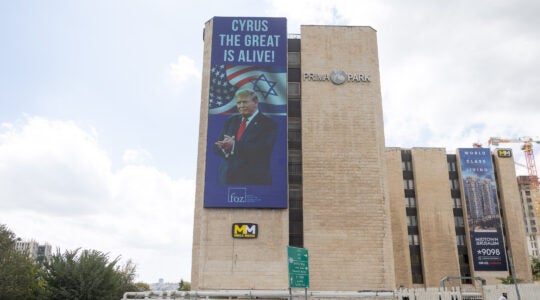WASHINGTON (JTA) — The Supreme Court ruled in favor of victims of terrorism seeking access to frozen Iranian assets.
The 6-2 decision on Wednesday upholds a law passed in 2012 that removed legal obstructions to victims of attacks believed to be carried out with Iran’s backing, and their families, to claiming almost $2 billion in Iranian assets frozen in the United States.
Bank Markazi, Iran’s central bank, had appealed lower courts’ upholding of the statute, saying it violated separations of power because Congress was effectively litigating a case while it was under review by the courts. The case combines a number of lawsuits against Iran filed in years prior to the 2012 law.
Among the plaintiffs is the Rubin family whose family member was injured in a 1997 double suicide bombing on Ben Yehuda Street in Jerusalem. The family is represented by the Israeli NGO Shurat Hadin.
Justice Ruth Bader Ginsburg, writing for the majority, said that the 2012 law provided clarity to existing legislation, which is Congress’ right.
“A statute does not impinge on judicial power when it directs courts to apply a new legal standard to undisputed facts,” she wrote.
The 2012 law “provides a new standard clarifying that, if Iran owns certain assets, the victims of Iran sponsored terrorist attacks will be permitted to execute against those assets,” Ginsburg wrote. “Applying laws implementing Congress’ policy judgments, with fidelity to those judgments, is commonplace for the Judiciary.”
Rep. Ileana Ros-Lehtinen, R-Fla., who authored the 2012 law, praised the court’s ruling.
“The ruling will now clear the way for the more than 1,300 Americans who are victims, or relatives of victims, of Iranian terrorism to get their long overdue justice and get monetary compensation from the regime’s frozen assets being held in America,” she wrote.
JTA has documented Jewish history in real-time for over a century. Keep our journalism strong by joining us in supporting independent, award-winning reporting.





